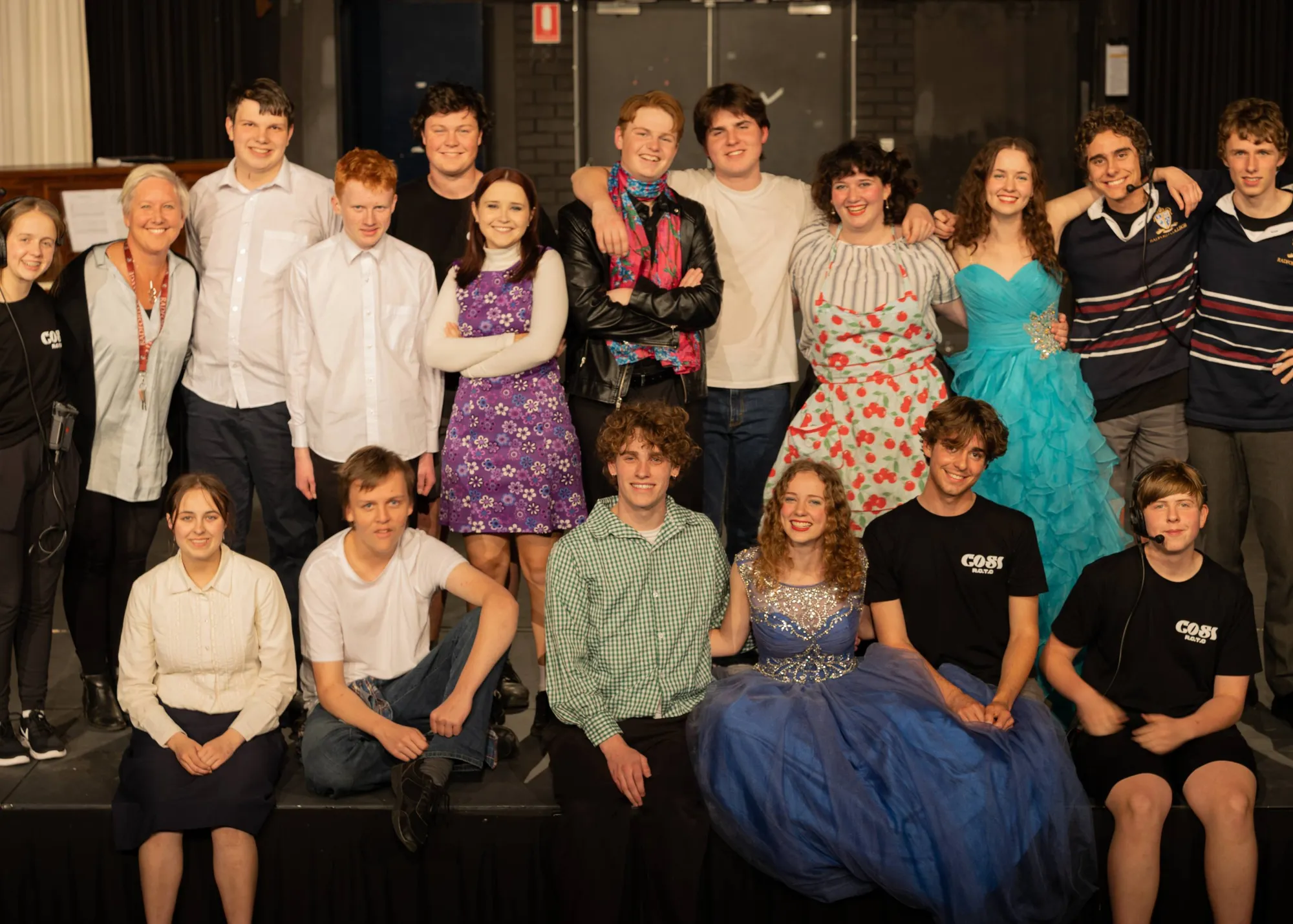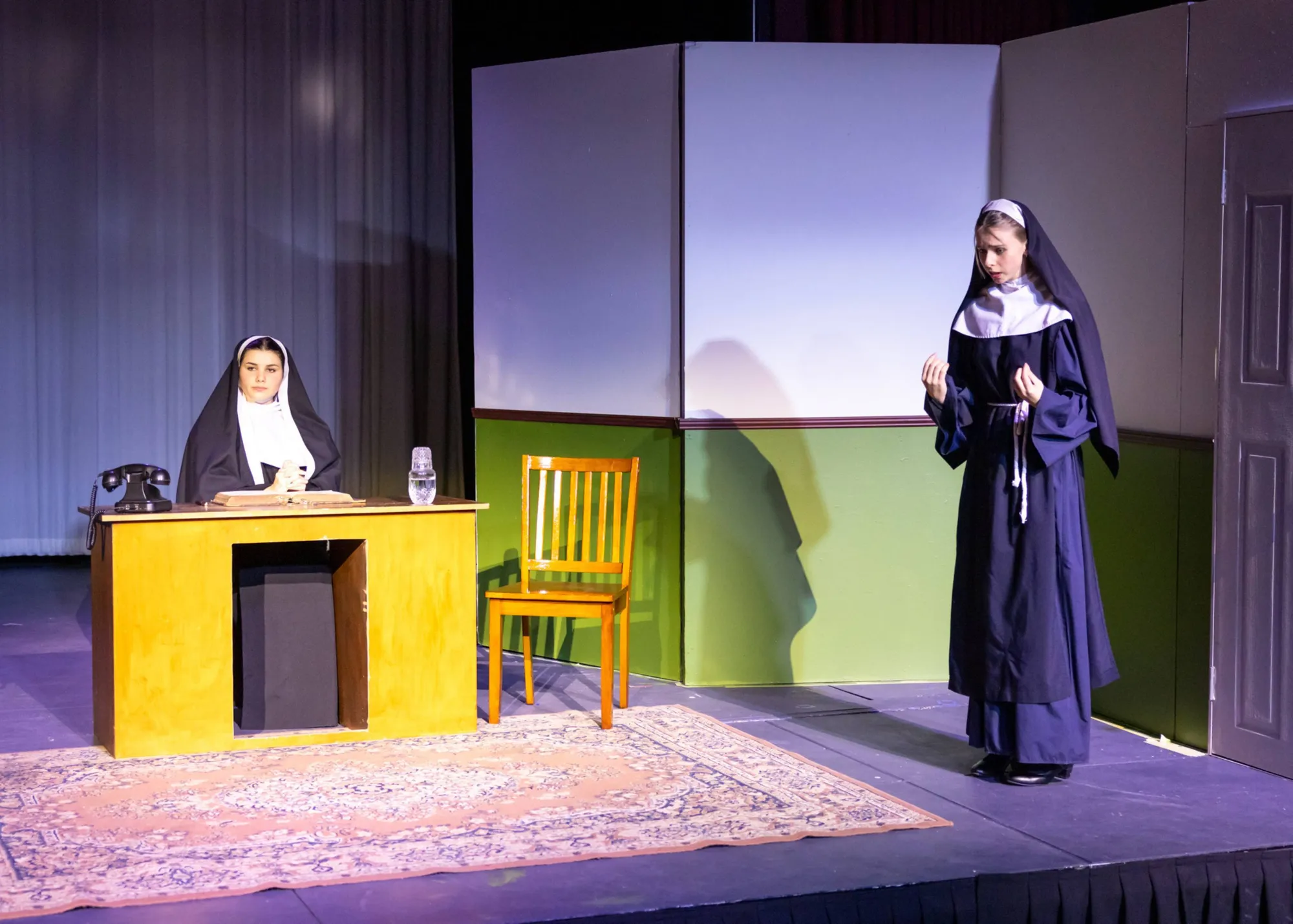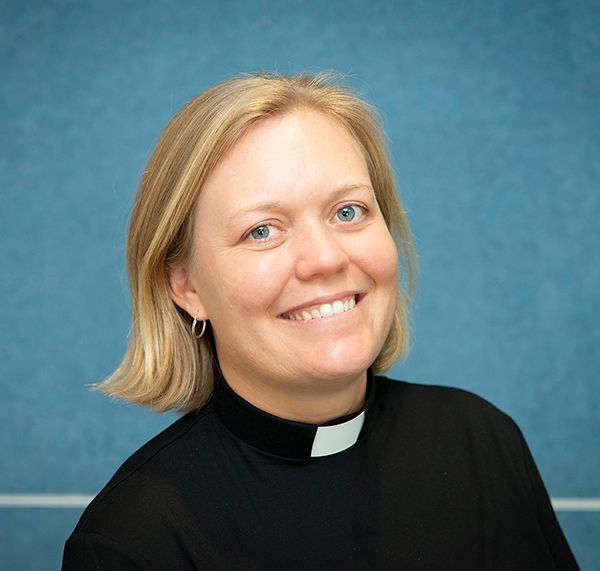How Then Shall We Live?
How Then Shall We Live?
By Rev. Dr Katherine Rainger, Senior Chaplain
The recent senior drama productions of Cosi by Louis Nowra and Doubt: A Parable by John Patrick Shanley gave audiences much to delight in and much food for thought. Both plays have been made into films. Audiences are taken to particular times and places and into the lives of characters who are responding to their own contexts and each other. Congratulations to all who were involved in the wonderful productions of these two plays.
Cosi explores the tension between artistic forms that speak of love, beauty and fidelity while the world around us is in a state of crisis and great need. The lives of individuals whose stories we learn are set within the backdrop of the Vietnam War. Cosi asks us to consider the role storytelling, drama and music play in our shared humanity. At the same time, what role should we play in holding governments accountable and at what cost? Lewis, the central protagonist, is pulled in these two directions.

In this week’s Gospel reading (Matthew 22: 15-22), Jesus is challenged by religious leaders with a question of whether it is lawful to pay taxes to Caesar. In asking this question, they highlight the tension between religious faith and political systems.
It is a seemingly no-win situation for Jesus. If he says no, he risks offending the Roman occupiers and being cast as a revolutionary. If he says yes, he risks offending the Jewish people suffering under Roman rule and the Jewish conviction that loyalty and allegiance belong to God alone.
Jesus answers this 'gotcha' moment by asking for a coin. He then asks whose image is on the coin. This is an easy one to answer: Caesar. Jesus continues, “Give therefore to Caesar the things that are Caesar’s and to God the things that are God’s.” But what exactly does this mean?
Jesus’ answer removes the binary between a simple yes or no to the question. Instead, he takes us into the world of nuance. His listeners used these coins for their economic transactions and livelihoods. Each person must, therefore, make their own decision as to how to live wisely and with discernment to stay true to their religious values and convictions while living life within a political system that has negative, positive and neutral elements. Yung Suk Kim expands and further develops this point in his insightful piece on Matthew 22: 15-22.
Sister Aloysius, in the play Doubt, embodies the need for discernment between personal conviction and the systems and structures to which we belong. Is Sister Aloysius vindictive and intolerant? Has she succumbed to gossip and false witness? Or is her testimony true and yet not enough to penetrate the powerful institution that she has dedicated her life to? These questions are what make the play and film so compelling!

The world in which we live is complex. Daily, we are faced with decisions as to how to live with integrity and faith-based convictions. Yung Suk Kim distils the wisdom Jesus offers:
"In the end, what Jesus teaches us is a critical interpretation of the world, fearless determination thereafter, and conscientious engagement in the world, based on what we believe is true. From Matthew’s perspective, the goal of life is not merely to defeat the empire or adopt an all-or-nothing policy, but to love people including enemies, strive after his kingdom and righteousness, and live in hope between now and the future. Until the end, they must continue to pursue the way of God progressively and radically."
May God grant us truth, compassion and wisdom as we live and love in the different facets of our lives: the personal and the political, our online and in-person interactions, and our prayer, worship, and action.
Let us pray (written by Kathy Galloway):
God of our lives
you are always calling us
to follow you into the future,
Inviting us to new ventures, new challenges,
new ways to care,
new ways to touch the hearts of all.
When we become fearful of the unknown, give us courage.
When we worry that we are not up to the task,
remind us that You would not call us
if You did not believe in us.
When we get tired,
or feel disappointed with the way things are going,
Remind us that you can bring change and hope
out of the most difficult situations.
Amen.
Responding to the conflict in Israel and Gaza
A statement on the situation in Gaza and Israel from the Primate of the Anglican Church of Australia, Archbishop Geoff Smith, and Executive Director of the Anglican Board of Mission (ABM) and Anglicans in Development (AID), The Rev’d Dr John Deane, can be read here.
For more than 30 years, the Anglican Board of Mission has partnered with the Al-Ahli Arab Hospital in Gaza through the Episcopal Diocese of Jerusalem. The Al-Ahli Arab Hospital is responding to human need in dire circumstances, including having their medical supplies run drastically low. This week, the hospital has been hit by explosions that killed hospital staff and patients and caused destruction to buildings and crucial infrastructure.
ABM has launched the Al-Ahli Hospital Emergency Appeal to support the hospital and their work.
We continue to pray for all who are caught up in this conflict, for life to be preserved, for hostages to be released, and for a just peace to be established.
